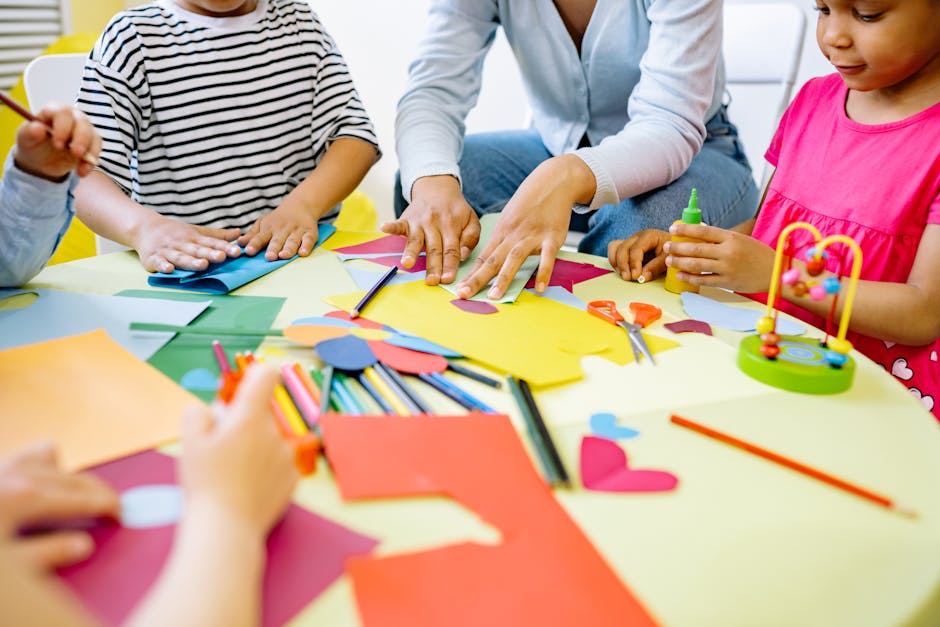Importance of preschool art projects
Art projects in preschool are more than just fun activities; they play a crucial role in a child’s development. Engaging in art projects at a young age helps children develop their creativity, fine motor skills, and hand-eye coordination. It also encourages self-expression and boosts their confidence. Moreover, art projects in preschool promote imagination and critical thinking, fostering a love for creativity that can benefit children throughout their lives.
Cognitive development through art
Creating art in preschool helps improve cognitive skills like problem-solving, critical thinking, and creativity. When children engage in art projects, they develop their abilities to express themselves and explore new ideas. Additionally, art activities enhance their fine motor skills as they manipulate various materials. By encouraging children to be imaginative and think outside the box, art plays a crucial role in nurturing their cognitive development.
Emotional benefits of art projects
Engaging in art projects at a young age helps children express their emotions creatively. Art projects encourage self-expression, boost self-esteem, and promote emotional development. Through art, children can communicate their feelings in a safe and constructive way, leading to improved emotional intelligence and overall well-being.
Social skills enhancement
Social skills are crucial for children’s development, and preschool art projects play a significant role in fostering these skills. Through these projects, children learn how to share materials, collaborate with others on creative tasks, and communicate their ideas effectively. Engaging in group art activities helps them develop empathy, cooperation, and teamwork skills. Additionally, art projects provide a platform for children to express themselves and interact with their peers in a positive and inclusive environment.
Fine motor skills improvement
Art projects in preschool can greatly help children improve their fine motor skills. As children engage in activities like cutting, coloring, and drawing, they develop better control over their hand movements. This not only enhances their ability to write and manipulate objects effectively but also strengthens their hand-eye coordination. Moreover, these activities stimulate the small muscles in their hands and fingers, which are crucial for tasks like tying shoelaces and buttoning clothes. So, encouraging preschoolers to participate in art projects can play a significant role in honing their fine motor skills.
Creativity and self-expression
Preschool art projects play a crucial role in fostering creativity and self-expression in young children. Through art activities, children can explore their imagination, emotions, and ideas in a free and open manner. This process helps them develop their communication skills and boosts their confidence in expressing themselves creatively. Art projects in preschool also encourage children to think outside the box, problem-solve, and develop their fine motor skills. The freedom to create in a supportive environment enhances their self-esteem and allows them to discover their unique talents and interests.
Boosting confidence and self-esteem
Engaging in art projects at a young age can help children boost their confidence and self-esteem. Creating and expressing themselves through art allows them to feel proud of their accomplishments and fosters a sense of achievement. When children see their ideas come to life through their art, it helps them develop a positive self-image and build confidence in their abilities. Art projects also provide a safe space for children to explore and experiment creatively, empowering them to take risks and trust in their ideas.
Incorporating art in early education
Art plays a crucial role in early education by fostering creativity, imagination, and sensory development in children. Incorporating art activities in preschool allows kids to explore different textures, colors, and shapes, enhancing their cognitive and fine motor skills. It also encourages self-expression and boosts confidence as children showcase their unique creations. Engaging in art at a young age provides a platform for emotional expression and communication, aiding in overall development.
Tips for successful art projects
Art projects can be a fun and educational way to engage your child’s creativity. To ensure successful art projects with your preschooler, here are some tips to keep in mind:
-
Encourage exploration: Let your child experiment with different art materials and techniques to foster creativity.
-
Provide guidance: Offer simple instructions and assistance when needed, but also allow your child to express themselves freely.
-
Celebrate the process: Focus on the enjoyment of creating rather than the final product, to boost your child’s confidence and creativity.
-
Use age-appropriate materials: Make sure the art supplies you provide are safe and suitable for your child’s age and skill level.
-
Display their work: Proudly showcase your child’s art creations to motivate and inspire them to continue exploring their artistic abilities.
Summary and concluding thoughts
Preschool art projects play a significant role in fostering creativity and developing fine motor skills in young children. Engaging in art activities at a young age helps children express themselves, build confidence, and improve their hand-eye coordination. Additionally, art projects can enhance cognitive development by encouraging critical thinking and problem-solving skills. In conclusion, incorporating art into preschool education is essential for holistic child development and should be encouraged both at school and home.


